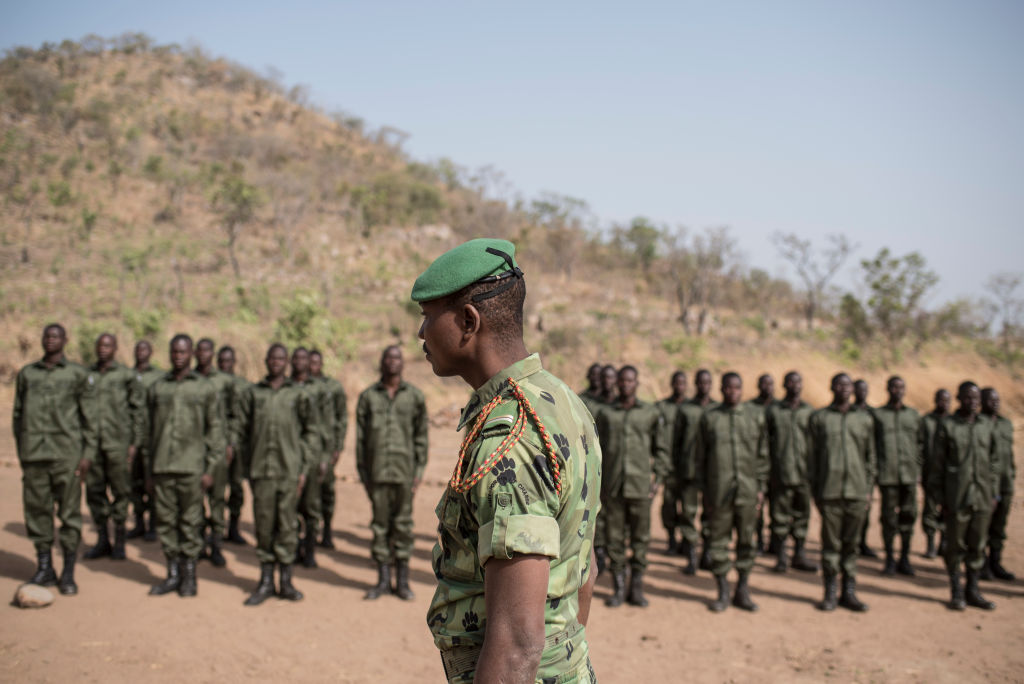Militant Activity in Benin’s W Park a Growing Concern
ADF STAFF
Benin’s W National Park sits on the country’s northern border, which has become the frontline in the battle to contain Sahel-based violent extremist organizations.
With the W Park as a convenient entry point, that frontline is moving south.
The 8,000 square kilometer park has become a haven and hideout for militants, prompting Benin to reassess its approach to security.
“They’ve turned the park into some kind of headquarters, or at least it’s an operations base,” Crisis Group analyst Ibrahim Yahaya Ibrahim told radio news network RFI.
“They take advantage of the fact that the park is difficult to access for the defense and security forces to set up camps which are often hidden under thick layers of trees making them invisible to drones and military planes.”
Militants have operated in the park since 2018, setting up small strategically located bases and moving frequently to control available water resources.
Benin has experienced an uptick in violent incidents since May 2019.
There were 26 organized attacks by al-Qaida affiliate Jama’at Nusrat al-Islam wal-Muslimin (JNIM) recorded in northern Benin between November 1, 2021 and September 14, 2022, according to the Armed Conflict Location & Event Data Project.
JNIM, the Islamic State-Sahel affiliate, and other extremist groups have dominated large swaths of the W Park by taking advantage of porous borders, rough terrain and a dearth of armed park rangers.
The W has become a hub of militant activity and a launchpad for incursions into Benin, Burkina Faso, Niger and Togo.
“The park has also become an important source of income,” Ibrahim said. “[Militants] use an intense network of tracks and rivers that cross the park to smuggle.
“They also store livestock that they have raided, and they organize the sale of this livestock in many rural livestock markets that exist in the area. On top of that, they collect taxes from the miners.”
Recurring droughts have pushed people from the arid Sahel into the tri-border area where they live on the park’s outskirts. These movements increase competition for grasslands and water.
The extremist groups prey upon the local population by exacerbating disputes over natural resources, stoking intercommunal conflict and then recruiting disaffected youths.
Wildlife reserves also offer militant groups access to criminal networks that deal in smuggling, poaching and illegal logging trades.
It’s a noxious mix that analysts such as Ibrahim have seen before.
A January 2023 report by the Crisis Group entitled “Containing Militancy in West Africa’s Park W” concluded that the park “risks suffering a fate similar to that of the Sambisa forest, a once-thriving game reserve in northeastern Nigeria where the Islamist insurgency Boko Haram set up its base in the mid-2010s.”
“Over the years, Sambisa became a smuggling hub for militants and an impregnable fortress to security forces, which tried to dislodge the group with aerial bombardments. Today, the forest is completely degraded, and its rare fauna and flora have vanished.”
Facing the rising threat of terrorism, the Benin government has increased its military budget from just over $101 million in 2022 to a requested $140 million for 2023 — a 38.6% increase.
Benin’s security forces are working to build capacity and recruit more than 2,000 Soldiers and police officers in the next three years.
In April 2022, Benin also informed the United Nations that it would withdraw its troops deployed in the Mali peacekeeping mission in order to strengthen its border security with Burkina Faso and Niger.
Ibrahim believes Benin’s terrorist threat requires military action, but he recommends combining it with nonkinetic approaches.
“There is no miracle solution,” he said. “Military action could focus on containment, trying to prevent the groups from expanding their presence beyond the park.
“Military action could also be accompanied by the dialogue initiative.”
Gilles Yabi, founder and executive director of the Senegal-based West Africa Think Tank, urged the involvement of civil societies in conflict resolution.
“The urgency is to contain these armed groups in limited areas and to possibly seek to dislodge them,” he told Benin Intelligent website. “Prevention must play a very important role.
“As these situations of insecurity primarily affect civil society, it undoubtedly has an important role to play … in preventing violent extremism and the settlement of armed groups in this region.”


Comments are closed.